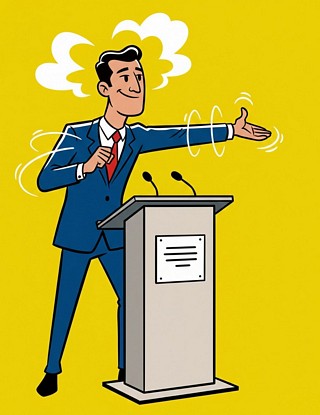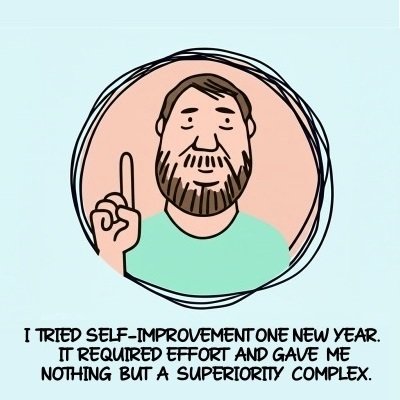
One of my favorite films is Rashomon (1950,) Akira Kurosawa’s masterpiece that gave psychology the term “The Rashomon Effect.” The film is famous for its structure: a single crime retold from multiple perspectives, each account contradicting the others. What emerges is not clarity but confusion, a reminder that memory, perception, and self-interest distort the truth. At its core, Rashomon is about unreliable narrators—characters whose versions of events are shaped as much by omission and self-deception as by fact.
Unreliable narrators transform messy realities into tidy, persuasive accounts. They smooth contradictions, omit inconvenient details, and present one interpretation as if it were the only truth. The result is a polished narrative that feels complete—even while concealing fractures.
This theme is hardly confined to Rashomon. Unreliable narrators and neat tales recur across cinema: Forrest Gump (1994,) The Usual Suspects (1995,) Fight Club (1999,) American Psycho (2000,) and Joker (2019) all show how fallible narrators can manufacture coherence and persuade audiences to accept a deceptively seamless version of events.
The problem lies in compromised credibility. Unreliability stems from self-deception, deliberate deceit, mental instability, or selective omission. These aren’t just stylistic quirks—they reshape the relationship between what is told and what actually happened. A neat narrative is rarely neutral; it reflects choices about emphasis and omission. Recognizing that neatness often signals construction is the first step toward resisting the illusion of completeness.
When a story feels too tidy, treat that neatness as a warning sign. Assume something is missing. Look for gaps in chronology, absent witnesses, sudden shifts in focus, or conveniently omitted facts. Silence itself can be evidence, and corroboration or alternative perspectives can turn absence into insight. Here’s how to read against the grain:
- Treat neatness as a warning sign. If a story feels too tidy, assume missing information matters. Gaps in chronology, absent witnesses, sudden shifts in focus, or conveniently omitted facts all carry meaning. Seek corroboration, alternative timelines, and outside perspectives to turn silence into evidence.
- Use inconsistencies as diagnostic tools. Contradictions reveal pressure points. Shifting memories, mismatched timelines, or actions that contradict stated motives expose where the constructed story begins to unravel.
- Assess incentives behind the polish. Every narrator has stakes—reputation, sympathy, control, or self-preservation. Those stakes shape which facts are highlighted and which are buried. Read emphasis and omission as strategic choices, and weigh what the narrator gains from presenting a clean version.
These habits of skepticism apply well beyond film criticism. Separate observation from interpretation, test for internal consistency, and consider incentives before accepting a neat account. This approach does not guarantee certainty, but it replaces passive acceptance with disciplined questioning.
Idea for Impact: The neat story is often the most dishonest. Truth is ragged, and only a fool mistakes tidiness for accuracy. Beware the narrator who makes it all add up.
 Phrases such as “look,” “here’s the deal,” and “here’s what you need to know” have become common preambles. Sometimes they’re harmless fillers, but often they’re micro-commands
Phrases such as “look,” “here’s the deal,” and “here’s what you need to know” have become common preambles. Sometimes they’re harmless fillers, but often they’re micro-commands 
 My friend Jack recently offered a retrospective on his decade-long dalliance with sneaker trends—a ride as unpredictable as it was swift. He began faithfully attached to New Balance, those once-maligned “dad shoes” that screamed suburban resignation. Then came Converse, adopted not for comfort but for credibility, as his children entered the age of judgment and he entered the age of trying not to embarrass them. Shortly thereafter, he flirted with On sneakers during a Lululemon-inspired phase that boldly declared, “I’m trendy, indeed!” Yet as fashion’s fickle currents swept him toward HOKA’s cloud-like comforts, Jack eventually circled back to a reinvented New Balance—now celebrated as a bona fide streetwear icon. Worn out by the relentless trend chase, he
My friend Jack recently offered a retrospective on his decade-long dalliance with sneaker trends—a ride as unpredictable as it was swift. He began faithfully attached to New Balance, those once-maligned “dad shoes” that screamed suburban resignation. Then came Converse, adopted not for comfort but for credibility, as his children entered the age of judgment and he entered the age of trying not to embarrass them. Shortly thereafter, he flirted with On sneakers during a Lululemon-inspired phase that boldly declared, “I’m trendy, indeed!” Yet as fashion’s fickle currents swept him toward HOKA’s cloud-like comforts, Jack eventually circled back to a reinvented New Balance—now celebrated as a bona fide streetwear icon. Worn out by the relentless trend chase, he  When stress hits, lowering your standards and aiming for
When stress hits, lowering your standards and aiming for  In 2023, a video of the Dalai Lama interacting with a young boy at a public event in India ignited
In 2023, a video of the Dalai Lama interacting with a young boy at a public event in India ignited  Few things feel more exhausting than the annual tradition of drafting New Year’s
Few things feel more exhausting than the annual tradition of drafting New Year’s  Modern life tempts us toward simple ideals—peace, joy, freedom—but wisdom lies in reimagining these not as escapes from discomfort, but as quiet, sustained negotiations with the
Modern life tempts us toward simple ideals—peace, joy, freedom—but wisdom lies in reimagining these not as escapes from discomfort, but as quiet, sustained negotiations with the  Optimism’s useful—good for your mind, body, and well-being. But it’s not a cure-all.
Optimism’s useful—good for your mind, body, and well-being. But it’s not a cure-all. Disappointed? Hurt? Offended?
Disappointed? Hurt? Offended?